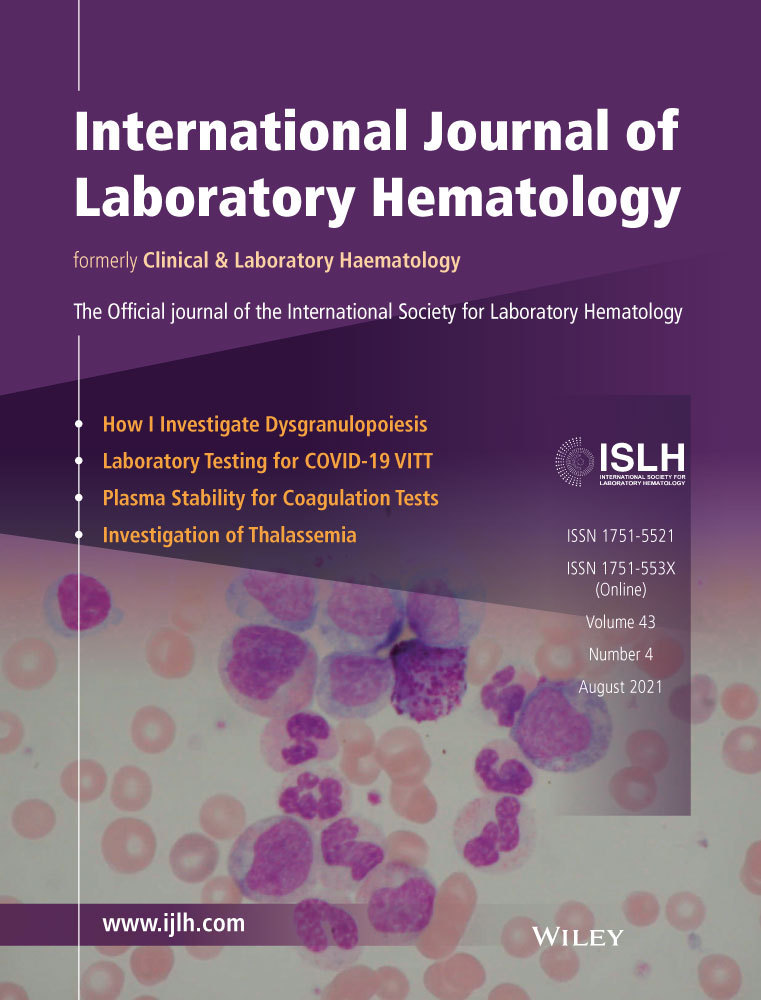Karyotypic complexity, TP53 pathogenic variants, and increased number of variants on Next-Generation Sequencing are associated with disease progression in a North American Adult T-Cell Leukemia/Lymphoma cohort
Funding information
The authors received no financial support for the research, authorship, and/or publication of this article. Zhang conceived and designed the project, compiled and analyzed data, and wrote the manuscript
Abstract
Introduction
Adult T-Cell Leukemia/Lymphoma (ATLL) is an aggressive T-cell malignancy without known characteristic cytogenetic abnormalities. Recurrent mutations in TP53, APC, and epigenetic and histone-modifying genes have been identified in North American ATLL. Their roles in disease progression are not yet fully elucidated.
Methods
We studied the cytogenetic and Next-Generation Sequencing (NGS) findings of the North American ATLL cohort at our institution and compared the findings with Japanese and other North American cohorts. We also analyzed the genetic variants in TP53, APC, and histone-modifying genes and investigated the impact of their mutations on the number of mutations via NGS in ATLL.
Results
Cases with more than 6 chromosomal breaks (n = 13) had significantly shorter overall survival compared to cases with fewer chromosomal breaks (n = 7) (P = .0007). Cases with breaks on chromosome 3q (n = 4) exhibited worse survival compared to the rest of the cases (n = 16) (P = .012). Chromosomal abnormalities on 3q, 14q, 1q, 1p, and 17q are likely primary changes in ATLL based on frequency and association with prognosis. The average number of mutations via NGS was significantly higher in cases with mutations in TP53 (n = 8) (P = .020) as well as APC (n = 6) (P = .024) compared to cases without mutations in these genes. All TP53 variants were pathogenic missense and truncating mutations in COSMIC database.
Conclusion
Cytogenetic and NGS methods are useful tools to monitor disease progression in indolent ATLL and assess prognosis in aggressive ATLL.
CONFLICT OF INTEREST
The authors have no competing interests.
Open Research
DATA AVAILABILITY STATEMENT
The data that support the findings of this study are available from the corresponding author upon reasonable request.




